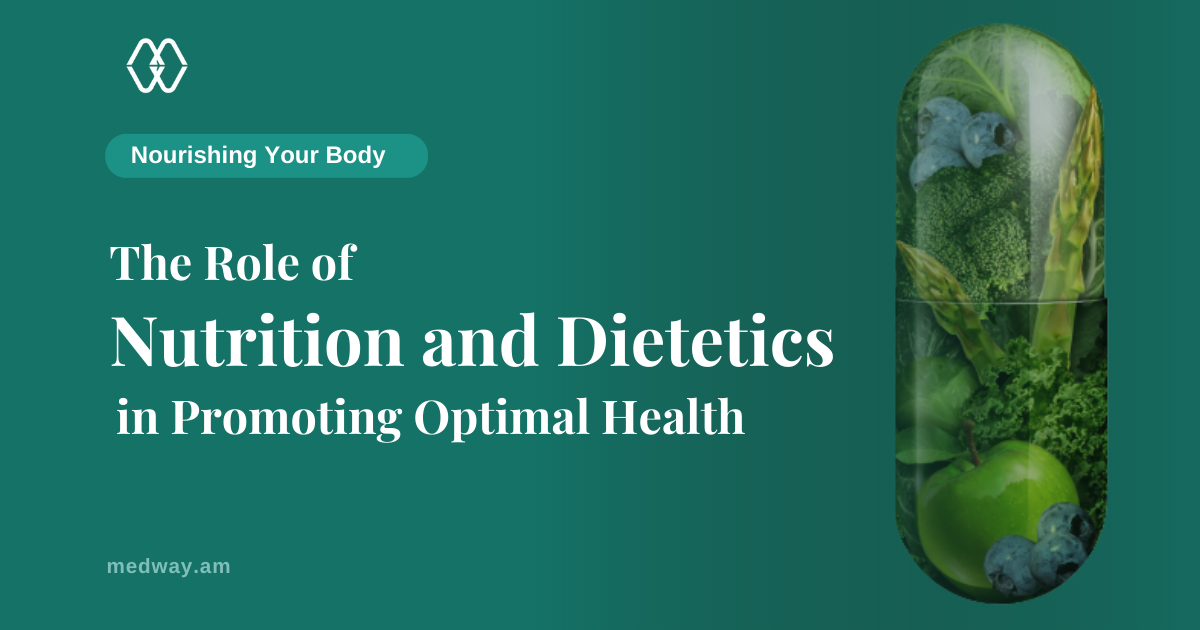
Proper nutrition is the foundation of good health. It provides our bodies with the essential nutrients, vitamins, and minerals needed to function optimally. As the field of nutrition and dietetics continues to evolve, so does our understanding of the impact of food on our overall well-being. In this blog post, we will explore the importance of nutrition and dietetics in promoting a healthy lifestyle, and how making informed dietary choices can positively transform our lives.
- Understanding Nutrition:
Nutrition is the science of how the body utilizes food for growth, maintenance, and repair. It encompasses the study of macronutrients (carbohydrates, proteins, and fats) and micronutrients (vitamins and minerals) and their respective roles in supporting bodily functions. By understanding the significance of each nutrient group, individuals can make informed decisions about their diet and create a balanced meal plan that caters to their unique nutritional needs.
- The Role of Dietetics:
Dietetics complements the science of nutrition by translating its principles into practical guidance. Registered dietitians are trained professionals who help individuals and communities develop healthy eating habits and manage specific dietary requirements. They provide personalized advice, taking into account factors such as age, gender, activity level, and existing health conditions. Dietitians also play a vital role in addressing common health concerns like obesity, diabetes, and cardiovascular diseases through specialized diet plans (medway.am).
- Tailoring Diets for Optimal Health:
One size does not fit all when it comes to nutrition. Each person has unique dietary needs, and a well-designed diet can address specific health goals or conditions. For example, athletes require diets rich in carbohydrates and proteins to support their physical performance and muscle recovery. Individuals aiming for weight loss may benefit from reduced-calorie diets that emphasize nutrient-dense foods. Dietitians work closely with their clients to develop personalized meal plans that incorporate a variety of foods while meeting their specific needs and preferences.
- The Power of Food Choices:
The foods we consume have a profound impact on our health and well-being. A balanced diet consisting of whole grains, lean proteins, fruits, vegetables, and healthy fats provides the necessary nutrients for optimal functioning. Additionally, dietitians stress the importance of mindful eating, which involves paying attention to hunger cues and practicing portion control. This approach promotes a healthier relationship with food and helps prevent overeating or emotional eating.
- Preventing and Managing Chronic Diseases:
A well-balanced diet plays a critical role in preventing and managing chronic diseases. Conditions such as heart disease, diabetes, and certain types of cancers can be influenced by dietary factors. Dietitians can work collaboratively with healthcare professionals to develop comprehensive nutrition plans that focus on disease prevention and management. By targeting specific nutrients and implementing dietary modifications, individuals can reduce their risk factors and improve their overall health outcomes.
- The Importance of Nutrition Education:
Education is a fundamental component of nutrition and dietetics. By raising awareness about healthy eating habits, the impact of processed foods, and the benefits of physical activity, dietitians empower individuals to make informed decisions about their diets. Nutrition education can take various forms, including workshops, seminars, and one-on-one counseling sessions. By equipping people with the knowledge and skills to make healthy choices, dietitians play a crucial role in improving public health.
In conclusion, nutrition and dietetics are essential components of a healthy lifestyle. Through a thorough understanding of nutrition and the expertise of dietitians, individuals can make informed choices about their diet to optimize their well-being. By adopting a balanced and personalized approach to eating, we can nourish our bodies, prevent chronic diseases, and enhance our quality of life. So, let's prioritize nutrition.